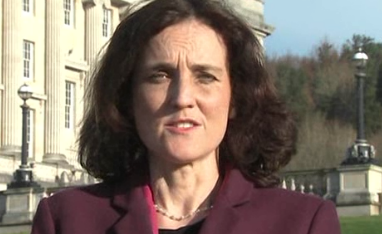06 October 2015
Following political talks last December between both governments and the political parties we had the publication of a document outlining a way forward to address the past; the Stormont House Agreement (SHA).
We have always said that if properly implemented the SHA legacy section contained, for the greater number of bereaved families from across the community, the very real potential of addressing the past in a meaningful way that was independent and for the first time met international human rights standards.
Recently the NIO released a policy paper that gave a sense of things to come. This raised concerns as to the role and intentions of the British government in that they could conceal evidential material as to their role and involvement in killings.
As talks continue this week draft legislation, which would give effect to such a flawed process, has been extensively leaked.
Relatives for Justice (RFJ) have had sight of the legislation and it makes for grim reading for families.
The legislation in no way, shape or form represents the SHA document published last December. RFJ would not recommend to families any emergent body from this legislation.
It is a self-serving piece of legislation crafted by the British government that is essentially written through the lens of ‘national security’. It bears no relevance whatsoever to a human rights compliant investigative process as promised. Rather it’s all about how the British government will prevent the disclosure of information where and when it decides it is in its interests. It is purely a British government position.
Having made much noise about an Article 2 compliant independent investigative mechanism via the Historical Investigations Unit (HIU) the British government has effectively ridden rough shod over that claim.
The draft legislation demonstrates the lengths gone to in enforcing non-disclosure of information about the role of the state and its agents in killings; the enforcer – the unelected British Secretary for the North. Ironically it tells us that there is much to hide.
This draft legislation facilitates the British government to be the referee, judge and jury when the reality is they are key protagonists in the conflict. They are not neutral. There approach is completely unacceptable.
Political talks are ongoing.
In the interests of getting back to what the original intentions were, as contained with the December SHA proposals, the current draft legislation needs to be withdrawn by Theresa Villiers and her government.
Fresh legislation reflecting the December proposals is now required.












